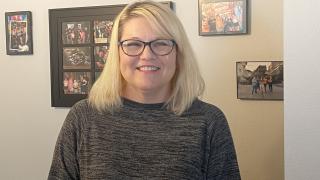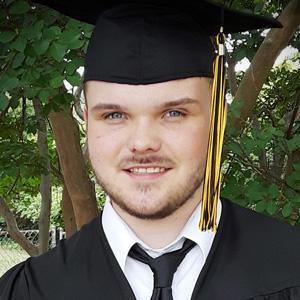Jodi Cruz never expected to be this healthy, or this lucky, or possibly even alive, by now.
That’s because the 45-year-old mother of three from Irvine, California, had struggled with type 1 diabetes for 30 years, ever since getting diagnosed as a teenager.
Growing up, she didn’t talk about it, preferring to think about her disease, the daily insulin shots, the nonstop blood sugar monitoring and all the type 1 diabetes-related health problems as simply “my lot in life.”
But she knew what could happen. In her youth, short periods of “rebellion” — skipping her insulin, eating risky foods — would land her in the hospital for days at a time. And as she got older and her health steadily deteriorated (“diabetes is so hard on your body,” she said, the pain evident in her voice), a powerful thought began to consume her.
“I wanted to make sure I would be there for my grandchildren.”
She looked everywhere for answers, signing up for a variety of experimental studies, all without success. Then a friend saw a TV news report about City of Hope’s work with islet cell transplants — injecting the diabetes patient with clusters of insulin-producing cells harvested from a donated pancreas. Cruz dashed off an email. Would she be a good candidate for the procedure?
The odds were long.
The study acceptance criteria are very strict. “We accept only about 2% of the applicants,” explained Fouad R. Kandeel, M.D., Ph.D. A 31-year veteran of City of Hope, he is director of the Islet Cell Transplantation Program and the Arthur D. Riggs Distinguished Chair in Diabetes & Metabolism Research.
Since 2004, City of Hope has performed more than 60 such transplants, advancing the science while awaiting eventual Food and Drug Administration approval. (The FDA considers islet cell transplant to be "investigational,” or experimental, meaning that the intervention is being studied to determine if it is safe and effective. Currently, each procedure receives limited approval under the “investigational new drug,” or IND, category.)
Careful Screening
Islet transplant candidates are carefully screened for complicating factors like cancer or heart disease that could worsen with the anti-rejection drugs needed after transplant, and to determine the patient’s ability to handle the procedure. This can take months.
Cruz made the cut. The next challenge would be to find a compatible donor. This is where fate, courage and selflessness converged.
Nearly 2,400 miles away, 18-year-old Thomas Smoot was in a car with friends near his home in Dallas, North Carolina, when he was thrown from the vehicle, suffering what would ultimately be a fatal head injury.
At the hospital, doctors approached Thomas's parents — shattered, in shock and already grieving for their son — and asked, might Thomas be an organ donor?
“I heard my voice say ‘Yes,’” recalled Stephanie Planton, Thomas’s mother. “But honestly, it felt like it wasn’t me. It seemed like someone else inside was speaking for me.” Barely holding back tears now, she continued, “I turned to my husband and asked him, ‘Is that OK?’ He said, ‘Yes, it’s OK.'”
Their courageous decision led to monumental results. Facilitated by LifeShare Carolinas, Thomas’s kidneys, liver, heart and lungs saved the lives of five people. His eyes enabled two more people to see. His donated bones, tendons and ligaments improved the lives of 26 patients.
His pancreas was brought to City of Hope, where Kandeel’s islet transplant team was waiting.
It is impossible for most of us to fully grasp what a wrenching decision this is for a grieving family. Cruz gets it. She lost a younger brother to a heart attack not too long ago, and the family agreed to donate his organs as well. Having thus become part of a donor family, and now soon to be a recipient, Cruz felt a powerful bond with Thomas’s loved ones.
“All I could think about was their grief,” she said. “And their gift. I felt so sad for them. And I knew I could never repay them.”
“It is so heartwarming, and the most impressive humanitarian gesture,” echoed Kandeel. “To make such a difficult decision while grieving their loss. It took real courage to say yes.
“We should all take our hats off to them.”
An Amazing Outcome
Typically, islet transplant patients must undergo several procedures because a single donated pancreas doesn’t provide enough islet cells. Even with multiple donors, there’s no guarantee that the patient can be totally weaned off of insulin.
But Kandeel had a different idea for Cruz, and together they made a bit of history.
The difference was gastrin.
As a fetus develops, the hormone gastrin is produced in the pancreas, helping to create those critical insulin-making cells. At birth, gastrin production stops in the pancreas and starts in the stomach, where it regulates acid secretion.
After seeing promising results in animal studies, Kandeel set out to develop a form of gastrin he could give his patients to help their transplanted cells take root and multiply.
On July 7, 2019, Cruz became the first patient to participate in Kandeel’s new gastrin clinical trial: the first in the world to undergo an islet cell transplant from a single donor, enhanced by two courses of gastrin.
It worked beyond anyone’s expectations.
The transplanted cells engrafted and functioned so robustly, Cruz never needed any additional donors. She was able to discontinue insulin treatment completely, and she did so faster than any other patient — even those who received multiple donations — ever had. “[Jodi] was insulin-free after just 11 days,” recalled Kandeel. “Normally it can take as long as 2 1/2 months.” And for the first time since her diagnosis three decades before, Cruz had stable blood sugar levels. No more wild high blood sugar swings after meals or fear of low blood sugar crashes.
“Gastrin became my best friend,” said Cruz.
Meeting Her Donor's Family
Loss, however, remained at the heart of this story, and Cruz wanted to honor Thomas, the young man who made her new life possible. And, as it turns out, Thomas’s family had been reaching out as well, eager to find out how recipients of his organs were doing.
LifeShare Carolinas brought them together. On Nov. 10, 2020, Thomas’s birthday, Planton, along with her husband and her parents, and Thomas’ two younger brothers met face-to-face (albeit virtually, Zoom screen to Zoom screen) with Cruz and her family for the first time.
Both sides were nervous. Would Thomas’s family feel resentful? Would Cruz be hindered by survivor’s guilt? Plus they were on opposite ends of the country, living very different lives. What would they talk about?
They needn’t have worried.
For more than an hour they shared stories. About family. About holiday traditions they had in common. And they talked about Thomas. How handsome and funny he was. How considerate and big-hearted he was. Photos were shared. There were some tears, but mostly there was laughter.
“It was awesome,” recalled Planton. “It brought me such joy to talk about Thomas. And I realized that out of something so heartbreaking for us, something good had happened. I’m so grateful that Jodi allowed me to see that unfold.”
The feelings were very mutual.
“I was surprised at how many stories about Thomas they were willing to tell,” said Cruz. “I got a really good picture of who he was. We’d shared a few letters. But now, seeing their faces, hearing about them, now it feels real.
“We’ve intermingled our lives,” she added. “Now I want them to remain part of me and I want to remain part of them.
“So they can see that Thomas is still doing great things.”
To find out more about islet cell transplant at City of Hope, please to to CityofHope.org/islets, call 866-44-ISLET (47538) or email islets@coh.org. For more information about Kandeel’s gastrin clinical trial, go here.
Click here to learn more about becoming an organ donor.

